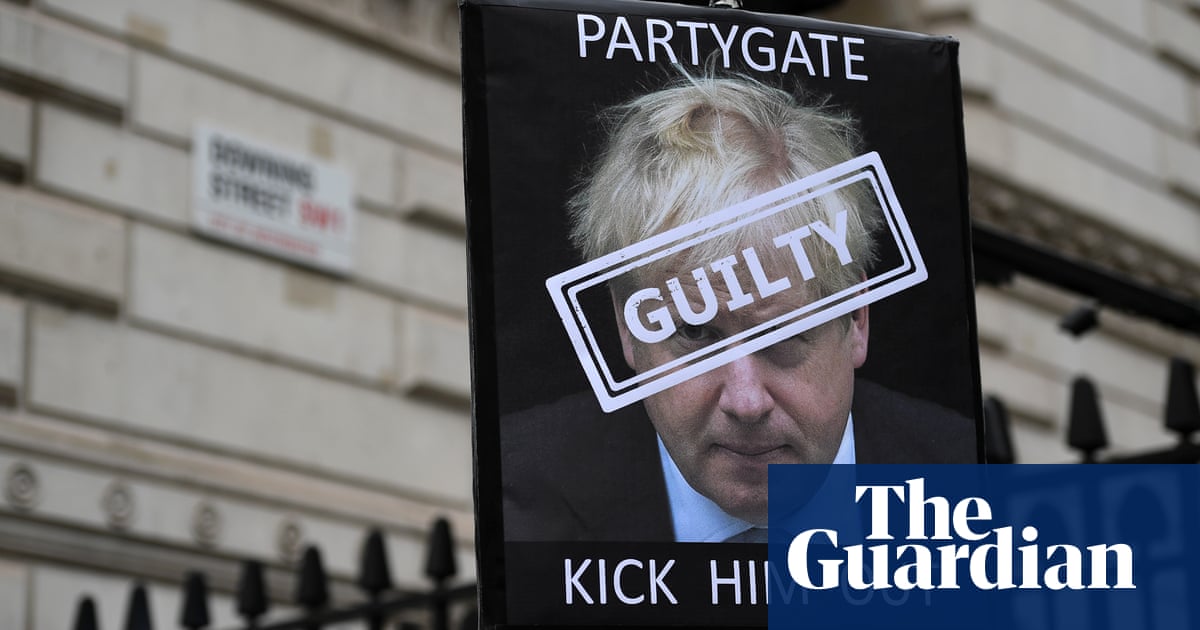
I’ve followed British politics since I was first able to vote in 1990. At that time, I was a student, full of fiery idealism but understanding of the need to accept and engage with a spectrum of opinions – the hallmark of a healthy, pluralistic democracy. Sure, my picks at the ballot box didn’t always win, and there were scandals, and politicians made mistakes or behaved dishonourably. But despite all that, it still felt like a system worth defending, worth believing in, worth promoting even.
More than three decades later, and after a truly torrid period that has exposed a deep rot at the heart of power, I feel nothing but resignation, despair and a nihilistic desire to disengage permanently. What point is there in any of this if those making the laws break those laws or find ways around them and yet still cling to power (Boris Johnson defies calls to quit after he and Rishi Sunak fined, 12 April)?
Worse still, they – and their supporters – seek to hide behind the smokescreen of war and humanitarian tragedy elsewhere to avoid doing the honourable thing. Ensuring that those who lie, break laws or seek to act with impunity do not retain power, and are forced to endure a true reckoning, is a sign that the democratic values we purport to believe in do matter. It’s a sign that we, as participants in and custodians of our democracy, care enough to preserve its integrity. That is what sends a message to the Vladimir Putins of this world. If some in this country can’t see that, we have already lost.
Colin Montgomery
Edinburgh
It is striking to note the spurious argument that because there is war in Ukraine this means that the prime minister should not be replaced. History shows that on numerous occasions we have replaced the prime minister in wars that we have been directly involved in. For instance, in May 1940, Neville Chamberlain resigned after the failure of British efforts to liberate Norway. In December 1916, at the height of the first world war, Lloyd George replaced Herbert Asquith.
More recently, Margaret Thatcher resigned in November 1990, with Iraq invading Kuwait in August of that year, which led to the Gulf war. Add to this, changes to prime ministers during the war in Afghanistan, the second Boer war, the second Opium war and the Crimean war, and it’s clear that this is not unprecedented in a time of conflict.
Those who make the law cannot be seen to be breaking the law and it is scarcely credible that Boris Johnson, who has now lost the final fragments of any moral authority he did have, can carry the confidence of the country and remain in office.
Alex Orr
Edinburgh
As your editorial states: “The integrity of British government is now in the hands of Conservative MPs” (12 April). Could one of those MPs kindly explain how, at a time of international tension, it reassures our allies and intimidates potential enemies for this country to continue to be led by a politician universally acknowledged as a serial liar and who does not keep promises or adhere to legally binding agreements?
Nigel Morris
Horncastle, Lincolnshire
I have great sympathy with Tory MPs. They are faced with a difficult dilemma: conscience or ambition.
Chris Lakin
Lymm, Cheshire













